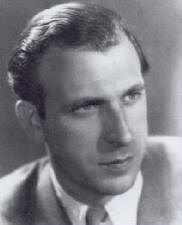Hans Hotter
Probably Hotter's best known vocal achievement was his Wotan in Der Ring des Nibelungen, beginning with the Rheingold Wotan and ending with the Siegfried Wanderer, which he first sang in the German provinces in his early 20s, and adding the Walküre shortly thereafter at the German theatre in Prague; he played the roles until the mid-1960s, by which time his voice underwent a brief crisis owing to severe asthma, causing him to miss the first season of the post-war Bayreuth Festival in 1951, but he sang there for several years starting in 1952.
In Die Walküre and Siegfried he was recorded in Decca's famous Ring Cycle in the early 1960s, conducted by Georg Solti and produced by John Culshaw.
An admired Hans Sachs in Die Meistersinger von Nürnberg, Hotter nevertheless preferred to sing the smaller and lower-pitched role of Pogner later in his career, because its tessitura was better suited to his voice.
He performed, and recorded, several non-German opera roles in German translation, including Count Almaviva (Mozart), Boris Godunov (Mussorgsky) and Don Basilio (Rossini).
[7] Hotter never completely retired from the stage, making his final public appearance in his nineties after several seasons singing such significant character roles as Schigolch in Alban Berg's twelve-tone opera Lulu.
At a brilliant performance of Walküre in Covent Garden in 1961 a mishap occurred during the final scene when Wotan is supposed to ever so slowly, silently depart from the stage.
Right after striking Brünnhild's rock to call on Loge to surround it with a cordon of fire, Hotter was blinded by the light and lost his footing, falling off the stage with a crash.
Hotter did not want to suggest to the audience that he had jumped off the mountain in remorse after stripping his favourite daughter of her status as goddess and putting her to sleep.
A bit late for his entrance in act III, he rushed backstage and swung an enormous cloak over his shoulders, entering the stage with his angry, impetuous "Wo ist Brünnhild?".
